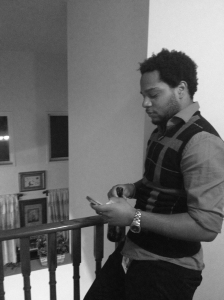
I read the other day that Google only knows 8% of all the Internet.
Google. Eight percent.
What’s left is apathetically called the “invisible web”; a mixture of private, but mostly public web pages, inaccessible to most search engines for whatever reason.
Eight percent.
On a loosely related note, I was talking to a friend about which piece of information you’d rather have to gain the best insight into who a person really is: their Facebook profile, or their Google search history? If I remember correctly, she took the Google search.
But it all got me thinking.
***
According to this study, a person’s Facebook profile really is a solid representation of who they are in real life. This is especially true for extroverts, unsurprisingly.
At the same time, with the number of criminals getting pinned because of Google searches, I think we can safely assume a person’s search history can be equally telling.
Still, as an avid and insatiable learner, this 8% figure bothers me.
Because of the personalization and tracking features of many popular websites, including Google, the search results I’ll get for something like abortion might look very different from what someone in the southern states might get. A search about North Korea here will definitely be different from what someone in North Korea would get. In fact, a friend of mine working in China said they just recently unblocked our site from whatever filters they’ve got running. Big win for CDLS– And China.
Of course that sentence is going to put us back on the black list.
My point though, is what if I want the raw, unbridled truth?
Personalization can be great for helping us find relevant things quickly. The problem however, is that the more we give to the internet, the less it gives back. That 8% shrinks to 7, 5, 3, until everything we see as we navigate the web, becomes a mere reflection of ourselves. An ever-narrowing view of the world that was already pretty tight to begin with.
Self-censorship.
Sites like Reddit, StumbleUpon, and various news websites can help widen our gaze, but we know how biased these sites can be. Compounded by the fact that most of us only visit our favourite section of that site, be it sports, fashion, business, whatever.
I’m not one for conspiracies, but I do find it unfair that the Internet knows so much about me (read: us) that it can do things like this, but if I want to search something like say pizza, I get what the Internet wants me to think I want.
Hmm.
I’m still thinking.









Thanks so much for featuring my post!!! xo.